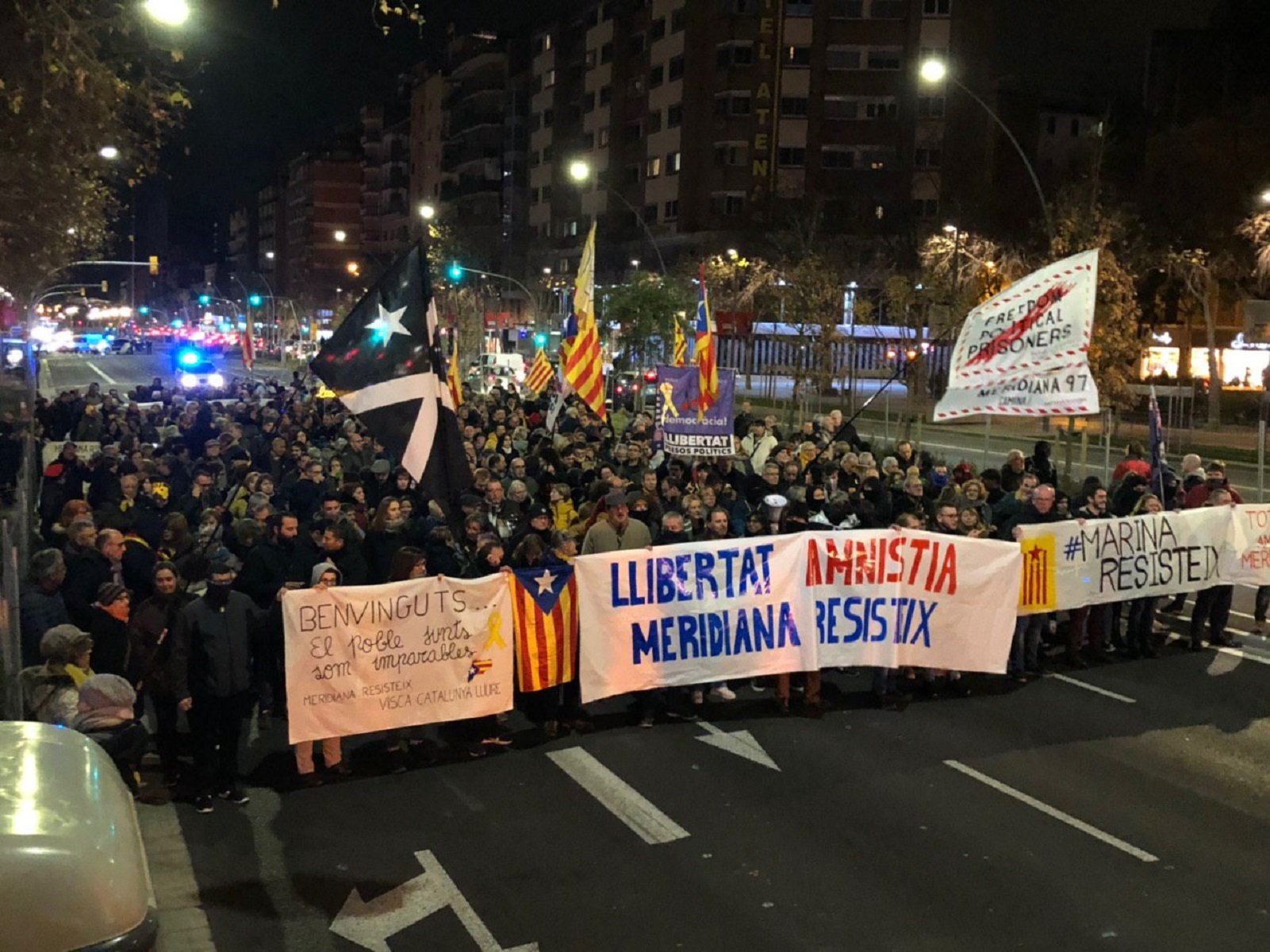The Catalan government is going to propose to Pedro Sánchez's executive that the right to protest in the Spanish state must be restored in demonstrations that are organized in line with special measures. These rules would include maintaining a distance of 2 metres between those attending protests, and only allowing them to be called in streets at least 20 metres wide.
The proposal also foresees only stationary demonstrations, with no marching, and proposes that placards and banners would have to held individually rather than shared.
"We are in favour of exercising the fundamental right to protest with the maximum normality and safety, and to guarantee this fundamental right," said Catalan interior minister Miquel Buch today, disassociating the proposal from images arriving from demonstrations this week in Madrid's Salamanca neighbourhood. He added that the Catalan administration has been working for weeks on such a plan because it was an issue that "concerns" his department.
"We are very concerned that people could take advantage of the situation we are undergoing to compromise the fundamental rights of Catalans," said the minister in an internet press conference, in which he explained that on Saturday his ministry will hand the plan over to Catalonia's PROCICAT emergency committee for its approval and then it hopes to deliver it to the Spanish government, given that the centralized Pedro Sánchez administration now holds the powers on the right to protest.
"You know that the government of Spain has reduced our powers and that here we cannot govern with absolute normality as we did previously, and therefore it has to be Madrid which authorizes the demonstrations," said the interior minister.
According to Buch, the plan responds effectively to the need for protest to be possible, while also protecting the health of those taking part, and he argued that it would not understandable for demonstrations to be banned if the necessary security measures exist. The measures provided for in the plan include a two metre separation between participants, a ban on protests in streets less than 20 metres wide, the wearing of masks and promotion of hand hygiene, the need for the protests to remain stationary, and the limitation on banners and other shared objects - only individual placards will not be allowed.
Asked why the Catalan government are presenting this proposal now, the minister said that it was “difficult” to explain that someone could go to work, use the metro and go shopping, but not protest.
As for the question of controlling compliance with measures such as social distancing, he said that this is a problem that concerns his ministry and that "the right solution" would be found: "But we can't say that, just because we can't control it, people can't protest. This must not be an excuse. Our obligation is to allow these rights to be exercised with absolute normality. The problem is ours and we will solve it," reiterated Buch, adding that the police and security forces also have a part in the solution.
Buch said that while he didn't know if other autonomous communities in Spain had made similar requests, he was aware that Catalans have seen people able to exercise the right to protest in countries such as Germany.

